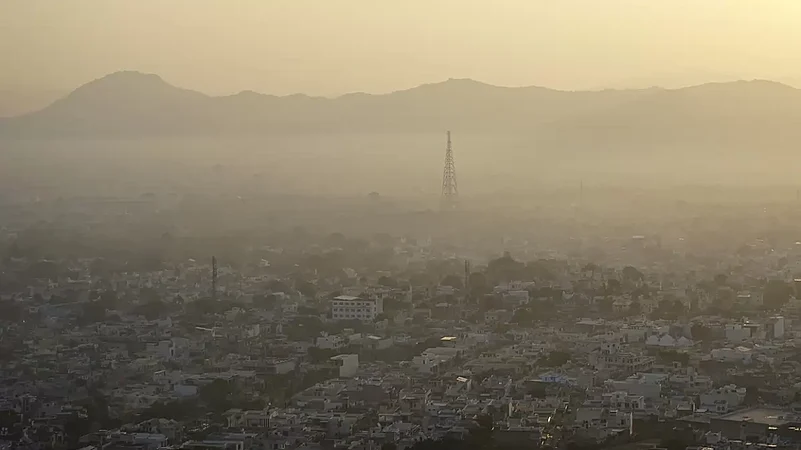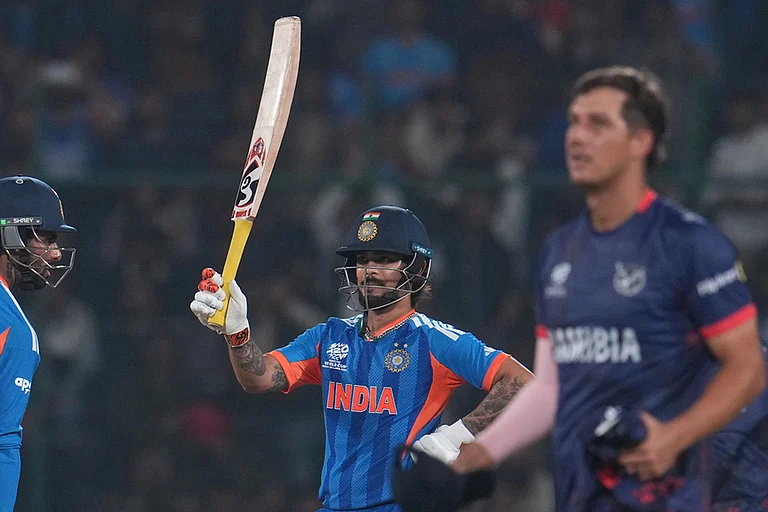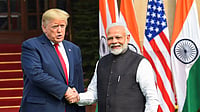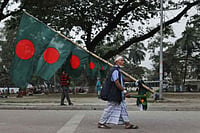People in Delhi disregarded the ban on firecrackers that led to a rise in the city's air pollution, environmentalists said the national capital's air quality dipped to the 'very poor' category on the morning after Diwali.
The air quality in Delhi on Diwali turned "very poor" amid an increase in stubble burning, bursting of firecrackers and moderately unfavourable meteorological conditions which allowed the accumulation of pollutants.
Founder and Director of Chintan Environmental Research and Action Group, Bharati Chaturvedi said citizens and the Delhi government are "equally responsible" for worsening air quality. The norms implemented by the city government to control air pollution "was flouted by the citizens" in most parts of Delhi, Chaturvedi told PTI.
"When the time comes for people to be responsible citizens and be a part of the solution, they don't do it. Most people who broke the law and burst firecrackers clearly don't care about their children or the elderly, or even their own quality of life," she said.
Chaturvedi said the citizens failed in their "constitutional duty" and the state government is "equally responsible" mainly because of their "inadequate and infirm" decisions. The capital's air quality index (AQI) was at 310 at 11 pm on Monday. It was 326 by 6 am on Tuesday, remained stable till 9 am and started decreasing thereafter.
The neighbouring cities of Ghaziabad (272), Noida (312), Greater Noida (282), Gurugram (313) and Faridabad (311) reported 'poor' to 'very poor' air quality at 9 am. An AQI between zero and 50 is considered 'good', 51 and 100 'satisfactory', 101 and 200 'moderate', 201 and 300 'poor', 301 and 400 'very poor', and 401 and 500 'severe'.
Environmentalist Bhavreen Kandhari said the police and the Delhi Pollution Control Committee (DPCC) need to "take action" and "set a precedent" for the future. "There was a ban and many many flouted it, even outrightly challenging the enforcing agencies to take action," she said. Kandhari told PTI that to "make the situation better", the ban on firecrackers "should continue" until next year.
"The government must not say things for the sake of grabbing headlines and instead bring those norms into action. Ban on firecrackers should continue until next year so that there is no question of crackers being available in the city," she said.
On Monday night, people in Delhi flouted the ban on firecrackers with impunity. PM2.5 concentration at most places in the capital was over 550 micrograms per cubic metre by 1 am. However, PM2.5 levels dropped below 350 micrograms per cubic metre by 10 am due to warm and windier conditions. PM2.5 are fine particles that are 2.5 microns or less in diameter and can travel deep into the respiratory tract, reaching the lungs and entering the bloodstream.
"Air quality data shows firecracker ban wasn't implemented in Delhi as average pollution levels crossed the 500 micrograms per cubic metre around midnight despite better meteorology and lower contribution from farm fires this year compared to past years," Sunil Dahiya, an analyst at Centre for Research on Energy and Clean Air (CREA), told PTI.
He said the higher base pollution levels due to the "non-regulation" of big polluting industries and power plants "were compounded by contributions majorly from rampant firecracker bursting" on Diwali night despite the ban.
"The governments failed in controlling pollution from big institutional polluters such as industries and power plants as well as from episodic events like firecracker bursting. This is resulting in huge loss of human health and to the economy of the state and India," Dhaiya told PTI.
Delhi Environment Minister Gopal Rai on Tuesday said that incidents of bursting firecrackers on Diwali in Delhi "dropped by 30 per cent this year" as compared to last year and the city recorded its "best air quality for the day after the festival in five years". "People of Delhi were very thoughtful on Diwali this year and I want to thank them. Today, the pollution level is the lowest in five years. The AQI of 323 is still worrying and tells us that air pollution will increase in the coming days," Rai said.
(With PTI inputs)


























